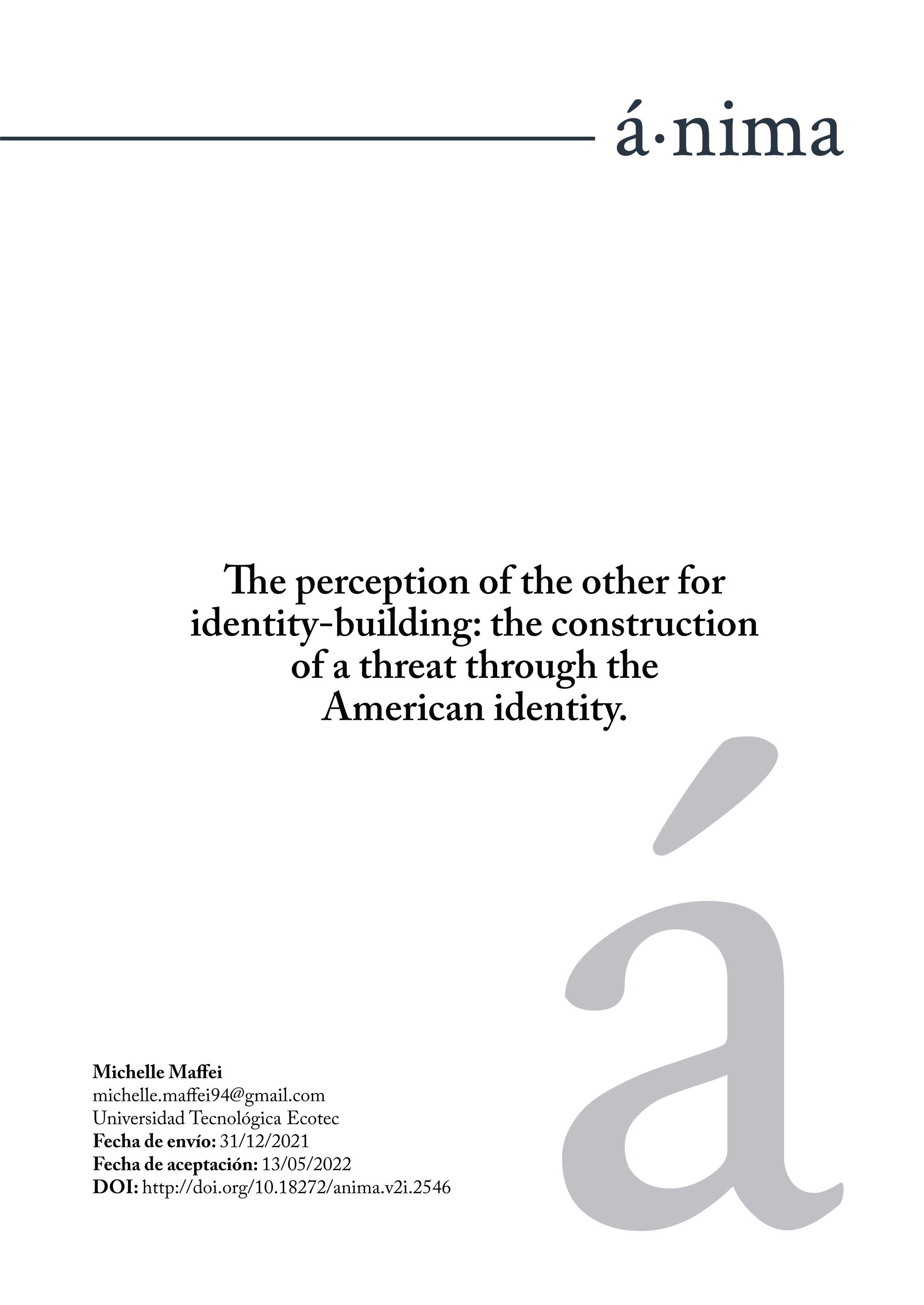The perception of the other for identity-building: the construction of a threat through the American identity.
DOI:
https://doi.org/10.18272/anima.v2i.2546Palabras clave:
threat, identity, identity-building, dualism, polarity, evilResumen
The concept of threat is a wide concept to embrace because it can be associated with something unknown or something evil. However, the main idea of the concept is that it produces an existential fear. Hence, it must be eliminated or at least tried to be eliminated. These assumptions are quite limited because they cannot apprehend the polarity of things. The concept of threat and identity even though they seem mutually exclusive, are in reality mutually sustaining. Hence, this qualitative article shall argue that there is an existential need to have a threat or fear of the unknown for the construction of a strong identity. It explores the need to have a threat as a scapegoat and how these sorts of threats are pivotal to categorially understand our own identity.
Descargas
Citas
Bauman, Zygmunt. Community: Seeking Safety in an Insecure World. Madrid: Siglo XXI, 2008.
Buzan, Barry. People, States, and Fear: The National Security Problem in International Relations. Brighton, Sussex: Wheatsheaf Books, 1983.
de Graaf, Beatrice. "An End to Evil: An Eschatological Approach to Security". Philosophia Reformata, No. 81, 2016, pp. 70-88
Girard, René. The Scapegoat. Baltimore: The Johns Hopkins University Press, 1986.
Hekman, Susan. Private Selves Public Identity: Reconsidering Identity Politics. Pennsylvania: The Pennsylvania State University Press, 2004.
Huntington, Samuel. Who Are We? the challenges to America´s national identity. New York: Simon & Schuster Paperbacks, 2004.
Petersson, Bo. "COMBATING UNCERTAINTY, COMBATING THE GLOBAL: SCAPEGOATING, XENOPHOBIA AND THE NATIONAL-LOCAL NEXUS." International Journal of Peace Studies, Vol. 8, No. 1, 2003, pp. 85-102.
Ruiz, Teofilo. The Terror of History: on the uncertainties of life in western civilization. New Jersey: Princeton University Press, 2011.
Watts, Alan. The Two Hands of God: The Myths of Polarity. New York: Collier Books, 1963.
Zizek, Slavoj, Gunjevic, Boris. God in Pain: Inversions of Apocalypse. New York: Seven Stories Press, 2012.
Zizek, Slavoj. Violence. New York: Picador, 2008.

Descargas
Publicado
Cómo citar
Número
Sección
Licencia
Los autores que publiquen en la revista aceptan los siguientes términos:
- Los autores conservarán sus derechos de autor y garantizarán a la revista el derecho de primera publicación de su obra, la cual estará simultáneamente sujeto a la Licencia de reconocimiento de Creative Commons que permite a terceros compartir la obra siempre que se indique su autor y su primera publicación esta revista.
- Los autores podrán adoptar otros acuerdos de licencia no exclusiva de distribución de la versión de la obra publicada, pudiendo de esa forma publicarla en un volumen monográfico o reproducirla de otras formas, siempre que se indique la publicación inicial en esta revista.
- Se permite y se recomienda a los autores difundir su obra a través de Internet:
- Antes del envío a la revista, los autores pueden depositar el manuscrito en archivos/repositorios de pre-publicaciones (preprint servers/repositories), incluyendo arXiv, bioRxiv, figshare, PeerJ Preprints, SSRN, entre otros, lo cual puede producir intercambios interesantes y aumentar las citas de la obra publicada (Véase El efecto del acceso abierto).
- Después del envío, se recomiendo que los autores depositen su artículo en su repositorio institucional, página web personal, o red social científica (como Zenodo, ResearchGate o Academia.edu).





